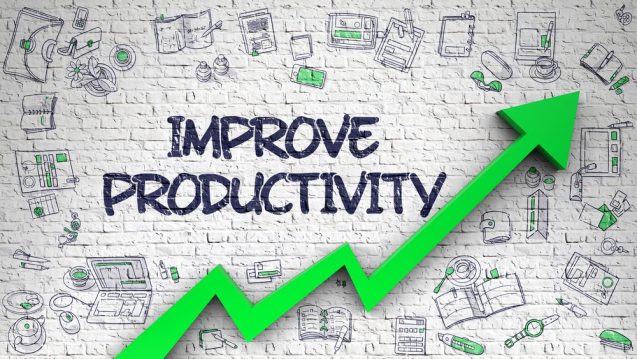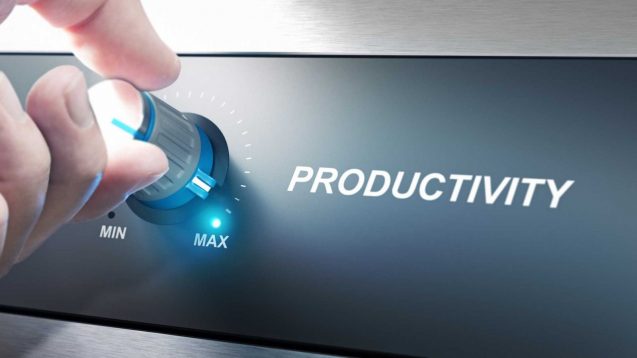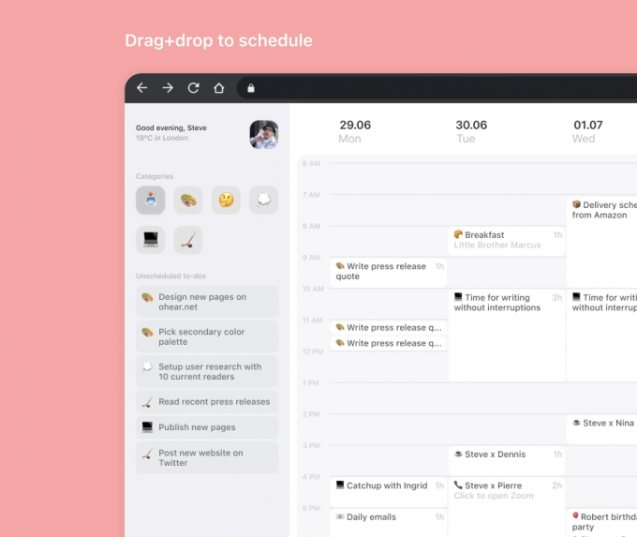Long before COVID-19 times, productivity apps were trending. They are even more of relevance after the shift the coronavirus has brought to our lives, both personal and professional ones.
Back in the summer of last year, GlobeNewswire stated that the productivity software market was expected to grow by 16.5% to reach $96 billion by 2025. They also explored that the US is determined to dominate the market (market share of 60.7% in 2025).
Source: pixabay.com
The key players in the productivity space – you might have heard of them: Slack, Trello, Asana are US-based.
Naturally, the pandemics and its consequences have brought along several changes in market conditions. The rapidly changing market scenario and initial and future assessment of the impact might have altered these numbers, but there is little to none reasons to believe that the market shrank.
In this article, we will shortly list the main reasons why people use productivity apps in the first place.
After that, we will follow the main goal: to try to figure out what it takes of a modern-day startup founder to deliver a competitive productivity app. In the meantime, we would explore the leaders of such applications on the market to figure out how one could stand out.
We will use the example of a young entrepreneur Dennis Muller and his upcoming product called Amie.
Why Do People Need Productivity Apps?
We find it relevant, and we could say important, to at least list the reasons there is a need in productivity apps. Naturally, people use productivity apps to optimize their times and efforts, and… boost their productivity. It’s listed in the name!
Here is the list of how productivity apps help you:
You become quicker and more effective in obtaining results. As the name suggests, productivity apps operate with multiple folds. This opens up more time for other tasks. Automatisation of some tasks helps you a lot, so why not utilize that?
The quality of your work increases. Those apps help with optimisation of your efforts, and the end result also benefits from that.
Source: shutterstock.com
Apps improve team collaboration and project management. There is no need to go to conference room meetings for every minor detail when all your communication is streamlined and conversations are logged. This is especially important in the new after-pandemics world.
Employee satisfaction is affected positively. When the job profile is less complicated, and problems are solved quickly, employees can work with lesser obstacles. Good productivity software not just serves as a metrics boost, but also helps with employees’ mood.
Productivity app might serve as a channel between organizations and customers. These apps might have ticket support systems that make it easy for customers to raise issues. The increased transparency would allow customers to track the progress of projects in real-time.
These are only a few reasons that highlight the importance of productivity applications. Since the utilities of these applications are many, the list can go on.
The vocal point to remember is that productivity apps make our lives better, faster, and more comfortable.
Amie, Dennis Muller, and Millions in Back Money
In July, TechCrunch reported that Amie, a new productivity app from Dennis Muller, has been funded by $1.3 million to “kickstart” development and hiring.
Photo: techcrunch.com
Founded early this year and with a planned launch in early 2021, Berlin-based Amie is developing a productivity app that combines a person’s calendar and to-dos in one place.
The app was previously known as “coco”, is expected to support all devices and have an interface that “works just like you think” – the UX has to be top-notch.
As a glimpse of what’s it going to be, Amie promises to let you drag ‘n’ drop to-dos into your day, or turn links and screenshots into to-dos. “You can create an event and invite people in a different timezone, all while other apps are still loading,” the young company commented to TechCrunch.
Also, Amie wants to act as a central workspace, letting you also do things like join video calls, take notes and do email, without the need to open extra browser tabs and therefore avoid “context switching.”
“Amie will target professionals who are currently using Google Calendar, due to our integration,” adds Muller. “The waitlist already counts thousands of users, who are mostly professionals working in the tech industry”. Designers, developers, bizdevs are the core of this waiting list.
The personality of the creator played its part:
“Dennis has an exceptional level of passion and entrepreneurial spirit. You can really feel it when you meet him,” Creandum’s Peter Specht, who closed the deal with Amie, commented.
“At this early stage, the team is the most important component,” – adds Specht.
As a software development company, Elinext backs these words 100%. Choosing the right person for the development of the app based on your ideas plays a central role in delivering successful products. Our mobile app development services ensure that your project is in capable hands. Contact us to receive a free quote if you have an idea for your software project and need a team of seasoned professionals to turn the idea into something amazing.
In the beginning, Müller was equipped with a grand vision and an MVP [minimum viable product] which he had built himself. After some successful business meetings, he attracted backers to the idea.
This is how he describes it:
“At the tail end of my travels in the US, I realised that I had an idea, but I wasn’t doing enough to get it going. So I booked a flight to Cape Town 37 hours before takeoff and when I got there, I disconnected from everything.”
From Monday until Sunday every week, Muller couldn’t be reached. In fact, he didn’t even have a phone number. Without any distractions, he was able to fully develop his ideas.
Then Muller discussed with Specht his vision of the product, and a week later, we had a signed term sheet.
Early view of the product. Source: sifted.eu
How to Stand Out from the Crowd?
As we’ve implied earlier, Amie has emerged at a time when the productivity space is booming worldwide. Though most of the market leaders are located in the US, Europe also wished to enter the race
In Berlin, where Amie is based, a new project management software, SuperList, was launched in May this year by Christian Reber, who previously founded discontinued task management app Wunderlist.
Reber said on Twitter that Superlist, being “more than just a to-do”, will provide a “fresh new take on supercharged team productivity”.
Muller likes his chances anyway.
In his view, Amie’s main competitors are Google Calendar, which many people use to schedule in to-dos, a handful of calendar and to-do apps, as well as the old-fashioned pen and paper.
“The number of productivity apps that are continually being created shows that consumers aren’t satisfied with what’s out there.”
Specht adds to that:
“People’s quest for increased productivity continues to be massive. However, the solutions they use to manage their time and tasks still involve a lot of friction in workflows. Amie has a very strong focus on design with an interface and workflows that feel intuitive.”
Muller tells us that he and his team are obsessed with the small details around the product – like the animations and transitions. “These are the things that make the iPhone popular. Without them, it would just be a piece of aluminium”
He is also putting emphasis on simplicity. He admits taking influence from successful apps like WhatsApp, Tinder and Spotify — which all have minimal functions. Dennis Muller tells that the app is as simple as it gets.
“Otherwise consumers just get confused with all the features — which ends up hindering, rather than helping, users’ productivity,” he explains.
Conclusion
Müller isn’t concerned about securing early wins, but about achieving long-term success – another thing that is important to deliver a world-class product.
We’ve mentioned a bunch of factors that would bring productivity to funding, and then, with the high probability – to a success. Even if you are entering a crowded market, you should find your niche and deliver the functions your competitors fail to see or realize.
Evaluate your idea. Believe in your idea. Vision is the key.













